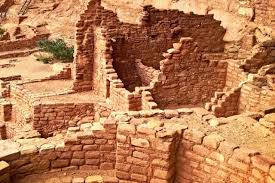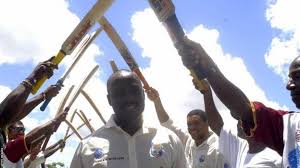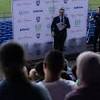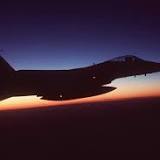Berlin drag show showcases Israeli-Arab coexistence in trying times

BERLIN, Germany — For seven years, an Israeli drag queen and Syrian belly dancer had hosted a joint monthly show at Berlin LGBT clubs, celebrating their coexistence in an extravagant party resembling a Middle Eastern wedding.
But when Hamas terrorists carried out a deadly attack on southern Israel in October, triggering an Israeli military offensive in the Gaza Strip, their relationship was tested.
“We spent long days talking. I was really insecure about where our relationship was going,” said the Syrian belly dancer, who uses the stage name The Darvish.
The artists also had to agree on the future of their show, “Yalla Hafla,” which means “Let’s Party” in Arabic — an approach that no longer seemed appropriate at a time of grief in Berlin’s Arab and Israeli communities.
Out of that grief, a new show, “Together,” was born.
Get The Times of Israel's Daily Edition by email and never miss our top stories
In Tipsy Bear, a cramped, purple-lit bar in the German capital, the event starts with a medley of Arabic, English and Hebrew songs, in which the black-cloaked Israeli drag queen, who uses the name Judy LaDivina, gives melodramatic lip-synching performances while The Darvish belly-dances in a jangling sequined skirt.
Less of a wedding party, the music now reflects a more subdued mood.

Illustrative: Drag queen performs on stage in central Jerusalem before the Drag Race, on February 16, 2015. (Hadas Parush/Flash90)
“It was not an option for us to go on stage in a celebration, but it was very important for us to give space for a dialogue to share our grief,” said LaDivina.
For the second half of the show, the audience is offered scraps of paper to contribute questions, remarks or confessions.
“We had a lot of people come to hug us every show,” The Darvish said, adding that the show has also sparked hateful comments and even death threats.
Caught between protecting artistic freedoms while recognizing what many Germans see as a historic responsibility to Israel after the Nazi Holocaust, the show is one of a few events in Germany offering such space to discuss the Middle East conflict, The Darvish said.
“I’m rarely seeing organizations or artists that are not afraid of saying ‘Palestine’ and ‘Israel’ in the same sentence,” LaDivina said.


 Australia
Australia Argentina
Argentina  Austria
Austria  Brazil
Brazil  Canada
Canada  Germany
Germany  Ireland
Ireland  Italy
Italy  Malaysia
Malaysia  Mexico
Mexico  New Zealand
New Zealand  Poland
Poland  South Africa
South Africa  United Kingdom
United Kingdom  United States
United States 
























